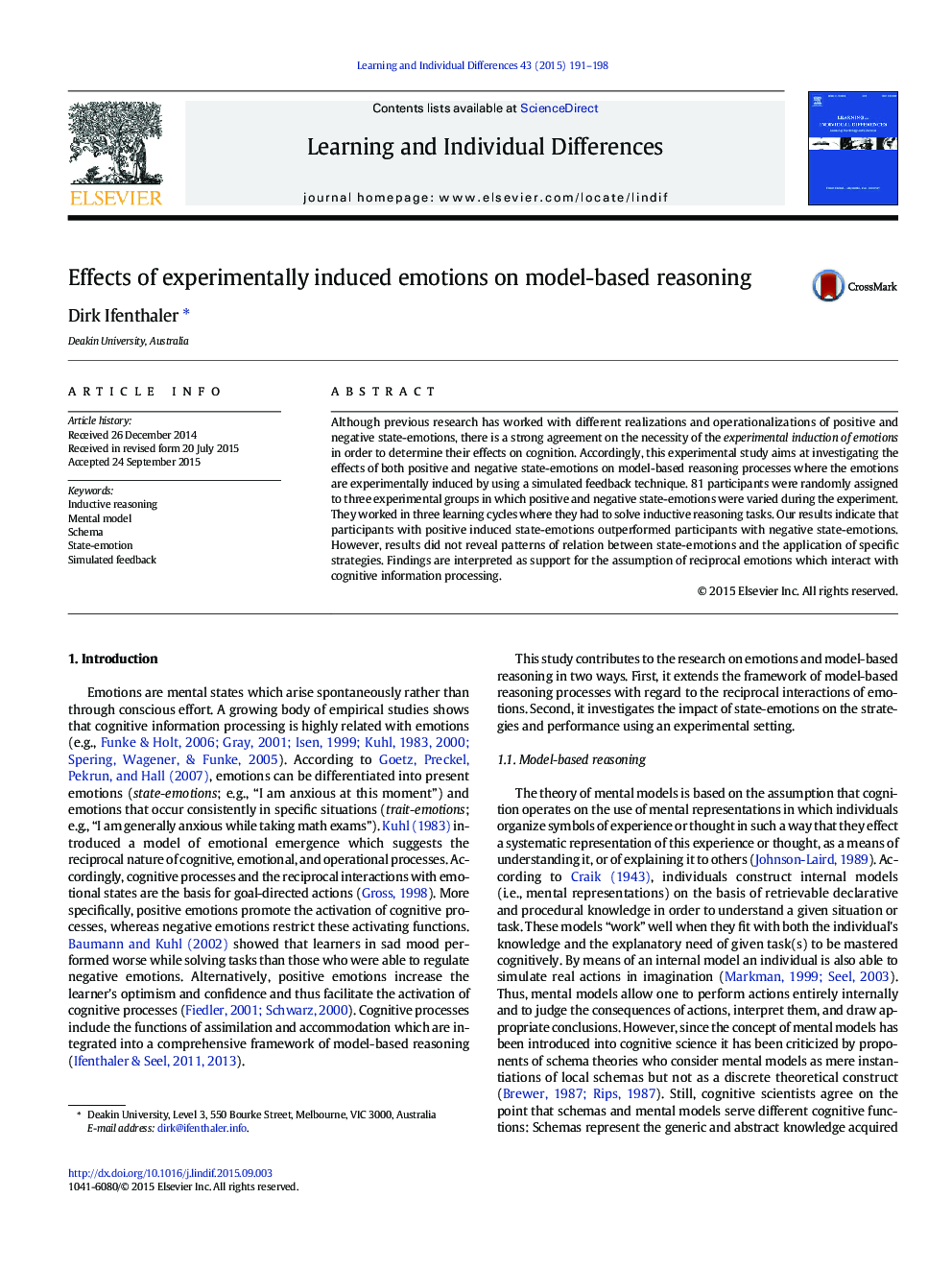| کد مقاله | کد نشریه | سال انتشار | مقاله انگلیسی | نسخه تمام متن |
|---|---|---|---|---|
| 364668 | 621080 | 2015 | 8 صفحه PDF | دانلود رایگان |
• Results show that the experimental induction of state-emotions was successful.
• Findings are a strong support for the assumption of reciprocal emotions which interact with cognitive processes.
• The present study confirms the fact that inductive reasoning is a hard problem for individuals.
Although previous research has worked with different realizations and operationalizations of positive and negative state-emotions, there is a strong agreement on the necessity of the experimental induction of emotions in order to determine their effects on cognition. Accordingly, this experimental study aims at investigating the effects of both positive and negative state-emotions on model-based reasoning processes where the emotions are experimentally induced by using a simulated feedback technique. 81 participants were randomly assigned to three experimental groups in which positive and negative state-emotions were varied during the experiment. They worked in three learning cycles where they had to solve inductive reasoning tasks. Our results indicate that participants with positive induced state-emotions outperformed participants with negative state-emotions. However, results did not reveal patterns of relation between state-emotions and the application of specific strategies. Findings are interpreted as support for the assumption of reciprocal emotions which interact with cognitive information processing.
Journal: Learning and Individual Differences - Volume 43, October 2015, Pages 191–198
